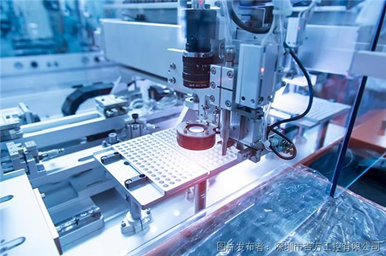

Industrial controllers play a crucial role in modern manufacturing processes. These devices, also known as programmable logic controllers (PLCs), serve as the brain behind the operation and control of various automated systems within factories and industrial settings. In this article, we will explore the functionalities, advancements, and potential applications of industrial controllers, highlighting their significance in driving efficiency, productivity, and innovation in the industrial sector.

Over the years, industrial controllers have undergone significant advancements, evolving from simple relay systems to complex and versatile devices capable of executing intricate tasks. Initially, relay-based controllers were employed to control basic industrial processes. However, with the introduction of digital computing technologies, programmable logic controllers emerged as a more efficient and flexible alternative.
Early PLCs operated using ladder logic, a programming language based on electrical relay circuits. As technology progressed, PLCs became more sophisticated, incorporating advanced programming languages like Structured Text and Function Block Diagrams. Additionally, the integration of microprocessors, improved memory, and networking capabilities has enabled controllers to handle complex algorithms, enhance communication between systems, and support real-time data analysis.
Industrial controllers perform various functions vital to the operation of automated systems. One of their primary roles is data acquisition, where they collect information from sensors, probes, and other devices dispersed throughout the production line. This data is then processed and analyzed, allowing controllers to make informed decisions in real-time.
Furthermore, industrial controllers enable precise control of processes by configuring specific parameters such as temperature, pressure, and speed. They regulate the flow of raw materials, monitor energy consumption, and ensure the optimal execution of manufacturing tasks. Additionally, controllers facilitate communication between different components of the industrial system, synchronizing their activities to achieve seamless operation.
With advancements in technology, industrial controllers have witnessed significant enhancements in recent times. The integration of artificial intelligence (AI) and machine learning algorithms has revolutionized their capabilities. AI-powered controllers can analyze vast amounts of data to detect patterns, make predictions, and dynamically adapt to changing conditions.
Moreover, cloud computing and the Internet of Things (IoT) have expanded the scope of industrial controllers. They can now seamlessly connect with other devices, access cloud-based data and analytics platforms, and even facilitate remote monitoring and control. These advancements enable industries to optimize their processes, minimize downtime, and improve overall operational efficiency.
The applications of industrial controllers are diverse and span across various industries. In manufacturing, controllers are central to the automation of assembly lines, enabling precision, accuracy, and high throughput. They are also utilized in the control and monitoring of power generation and distribution systems, ensuring a stable and reliable energy supply.
In addition, industrial controllers play a crucial role in chemical and pharmaceutical processes, maintaining strict control over variables and ensuring safety. They are employed in food and beverage production to regulate temperature, pressure, and mixing ratios, ensuring consistent quality and taste.
Furthermore, controllers find applications in wastewater treatment plants, optimizing the removal of pollutants and maintaining environmental standards. They are also vital in transportation systems, facilitating traffic control and management.
Industrial controllers continue to evolve, embracing advancements in technology and incorporating cutting-edge features. From their humble beginnings as relay-based systems to their current state as AI-powered devices, controllers have revolutionized the industrial landscape. Their adaptability, precision, and efficiency have become integral to modern manufacturing processes, streamlining operations and opening doors to further innovations.
As industries continue to progress, the role of industrial controllers will only become more significant. With continued advancements, these devices will drive increased automation, enhanced productivity, and further optimization of industrial processes, leading to a more efficient and advanced industrial sector.
By continuing to use the site you agree to our privacy policy Terms and Conditions.